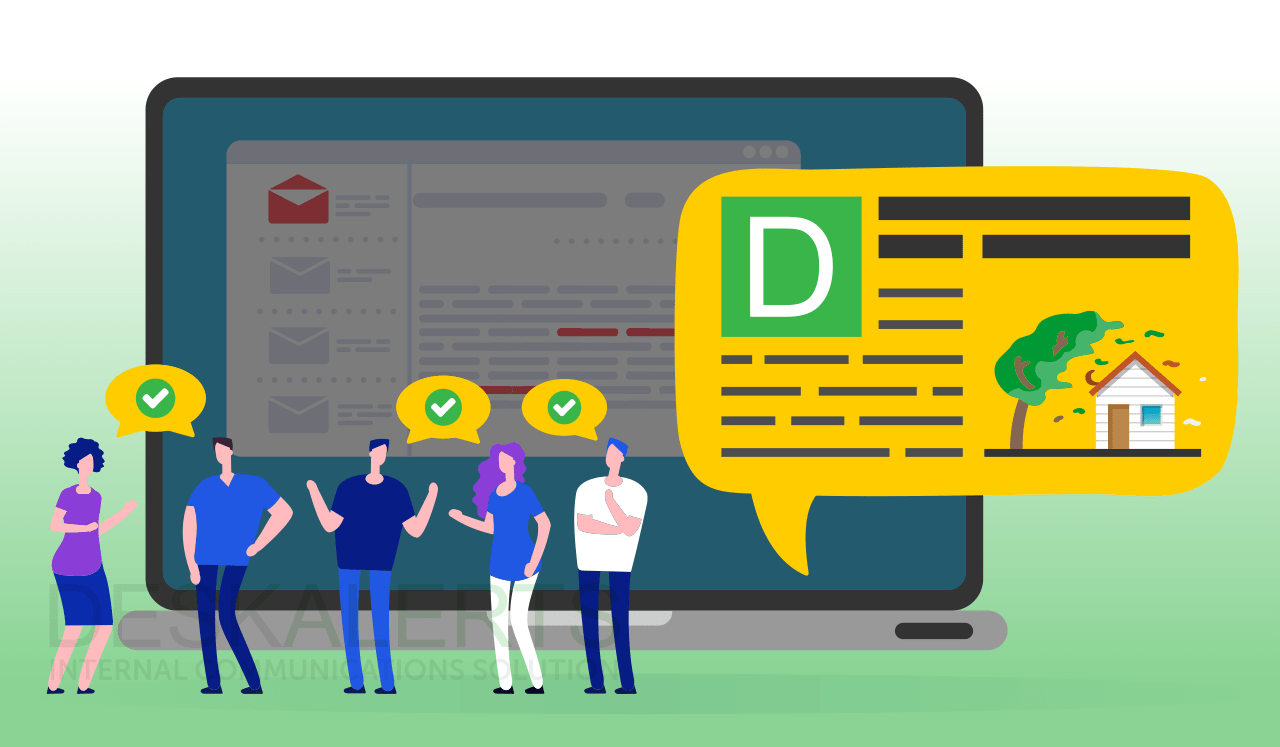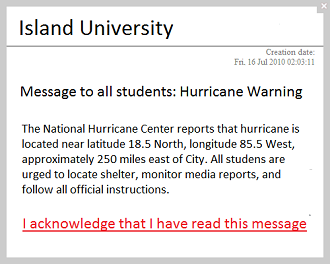 The Atlantic hurricane season has arrived and will affect many parts of the Gulf and east coasts of the United States of America, the Caribbean and parts of Central America. As always, hurricane season can affect businesses and their employees as wild weather and storm surges can cause damage to buildings and infrastructure, flooding, electricity outages as well as physical harm to people.
The Atlantic hurricane season has arrived and will affect many parts of the Gulf and east coasts of the United States of America, the Caribbean and parts of Central America. As always, hurricane season can affect businesses and their employees as wild weather and storm surges can cause damage to buildings and infrastructure, flooding, electricity outages as well as physical harm to people.
Forecasters from the Colorado State University Tropical Meteorology Project say there is a 69% probability the USA’s coastline will be affected by a major hurricane this season.
Additionally, this year, the stakes are raised even higher with the COVID-19 pandemic posing additional risks. If your business hasn’t already began preparing disaster and crisis response plans to deal with this double threat, there’s no time to waste. And depending on local conditions, the usual decision whether to “shelter in place” or evacuate may not be the same as it has been in previous years.
When you’re reassessing your disaster preparedness plans, it’s a good opportunity to evaluate your internal communications processes around hurricanes, especially in light of the pandemic.
Update your hurricane communications plan
Unlike other severe weather events, the arrival of hurricanes is rarely unexpected. The earlier you can warn your employees about the potential impact of a hurricane, the better chance you have to keep them safe, and to ensure business continuity arrangements are in place.
An internal communications plan that you have in place ahead of a hurricane situation developing will save you time and let you control the situation better. It will provide you with a clear strategy of what actions to take and when to minimize the risk of misinformation or scaremongering taking place.
Your plan should include key messages to deliver to your employees, and the communication channels you will use, as well as the timing of when messages will be sent. Wherever possible you should use multiple channels to ensure visibility of your messages.
This is also an opportunity to create templates that can be sent before, during and after a hurricane event to keep your employees informed. Keep in mind that messages can’t be too long, for example if you are sending SMS notifications. The hurricane text alerts should simply inform your employee what the situation is, what they need to do and when they need to do it.
Communicating before a hurricane
Your communications planning before a hurricane is essential, as discussed above. It’s also important that you have messaging in place you can use advising on whether employees should attempt to attend the workplace or shelter in place at home, what arrangements will be put in place if staff become trapped at work and can’t leave, what steps need to be taken to remain safe and how their jobs and the company will be affected.
In addition to your pre-written hurricane notice, ensure your staff contact lists are up to date and anyone with an emergency communications response role is clear on their role, responsibilities and duties. Employees should also be encouraged to look at the emergency communications plan so they understand it - you can even include communications as part of any drills or rehearsals that you conduct so employees are familiar with that aspect of it.
Communicating during a hurricane
When the hurricane finally arrives, the way you communicate with employees at this time needs to change. It is important you do not delay communicating, and relay information that you obtained from a reliable and official source. Every second counts during a disaster, so delaying your communication could be the difference between life and death.
When a hurricane is happening you need to ensure your employees who are on site can take the right steps to be safe. Send messages to all your communication channels letting them know what is happening and what they need to do. You should repeat the information throughout the event.
Don’t forget to send updated information as the situation changes. As winds and rain intensify, for example, or if they ease.
Communicating after a hurricane
How you communicate with your employees after a hurricane will depend on what damage, if any, was sustained during the event and what impact, if any, this will have on your business continuity.
Your office may need to remain closed for a while until it is safe for employees to attend again. Some of your employees may also have lost their homes.
Again, regular updates are essential whenever you have information to tell your employees, for example when they can return to the office, what the short to medium term impact on the company will be, what assistance is available to them if they have been personally affected and so on.

Use these templates before, during and after the hurricaine to keep your employees safe.
How to use these templates with DeskAlerts for your hurricane communications
The DeskAlerts system can be used as an emergency notification system either as a standalone system or in conjunction with mass notification system you currently use in your organization.
It works by sending emergency notifications straight to the computers, cell phones and tablets of your employees in an intrusive way so that they get the information they need to be safe.
DeskAlerts has a variety of channels and tools that will ensure your hurricane information is seen by your employees. You can:
- Send pop-up emergency notifications to desktop and laptop screens
- Send SMS messages to phones
- Use mobile push notifications via an app downloaded on employees’ phones and tablets to send reminders and longer texts than you can send with SMS
- Send information with updates via scrolling desktop tickers to keep people in the loop
- Use lock screen alerts to alert people to an emergency
- Publish rules and reminders about hurricane protocols on corporate screensavers; and
- Use the survey module to get instant feedback from staff about their welfare during and after a hurricane event.
You can save yourself time by using the templates we’ve provided and populate them with the relevant information during a hurricane, and deliver the information via DeskAlerts.
 Caroline Duncan
Caroline Duncan
 The Atlantic hurricane season has arrived and will affect many parts of the Gulf and east coasts of the United States of America, the Caribbean and parts of Central America. As always, hurricane season can affect businesses and their employees as wild weather and storm surges can cause damage to buildings and infrastructure, flooding, electricity outages as well as physical harm to people.
The Atlantic hurricane season has arrived and will affect many parts of the Gulf and east coasts of the United States of America, the Caribbean and parts of Central America. As always, hurricane season can affect businesses and their employees as wild weather and storm surges can cause damage to buildings and infrastructure, flooding, electricity outages as well as physical harm to people. 






